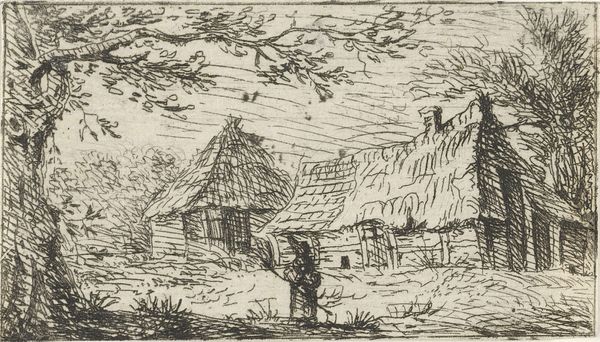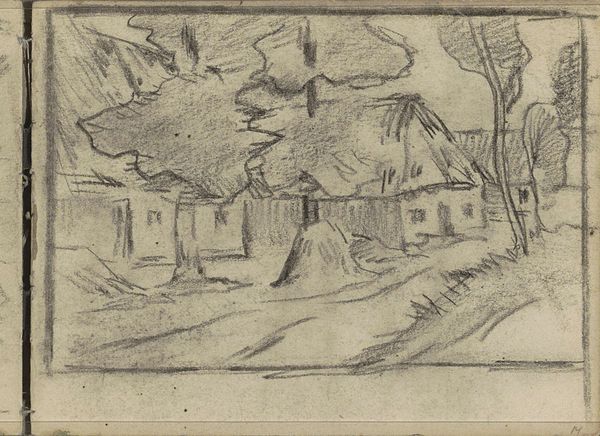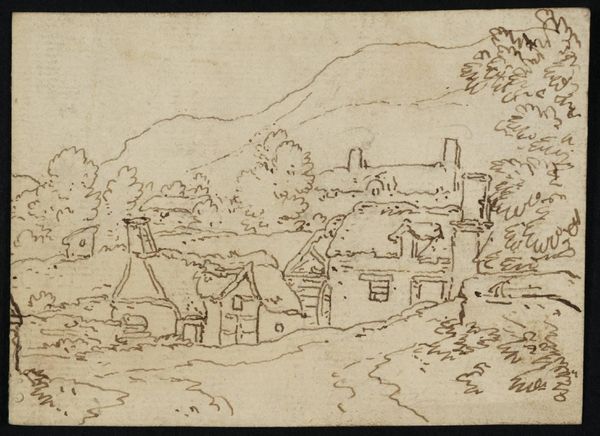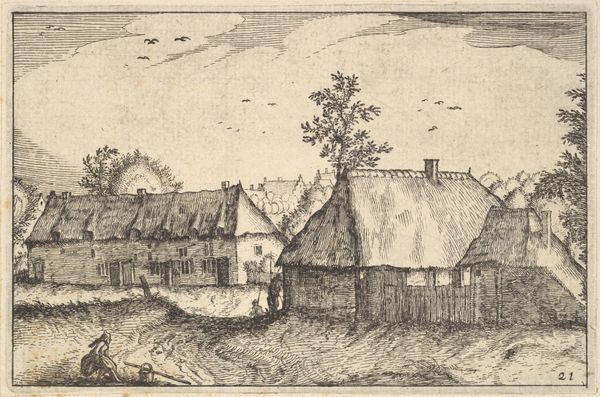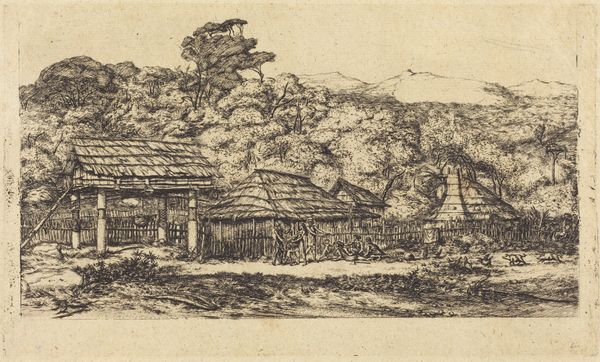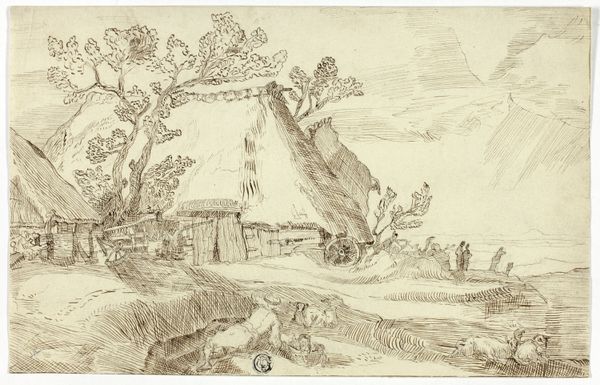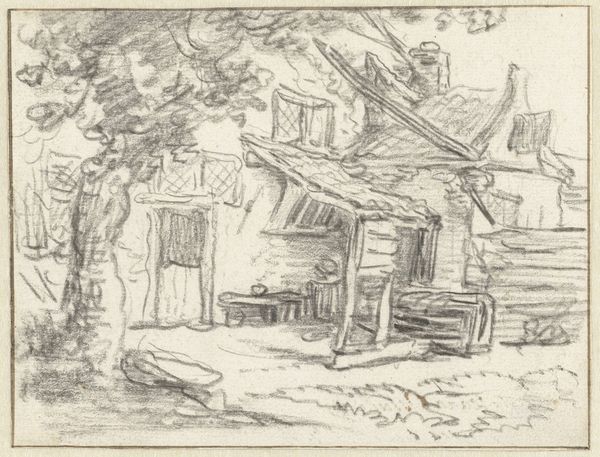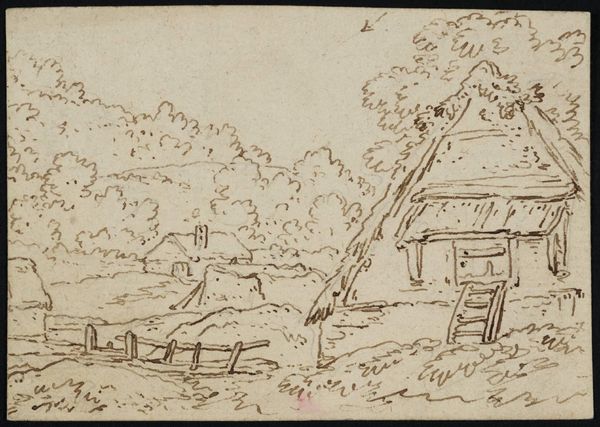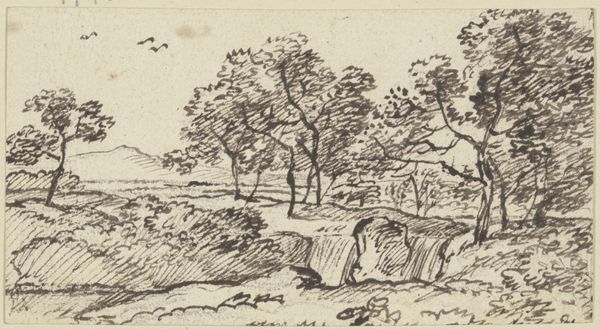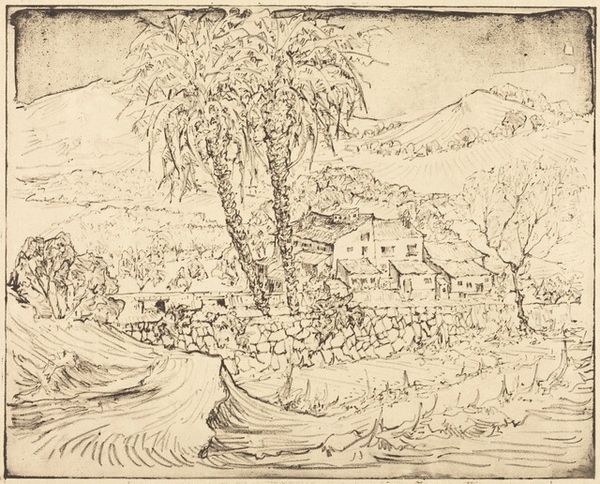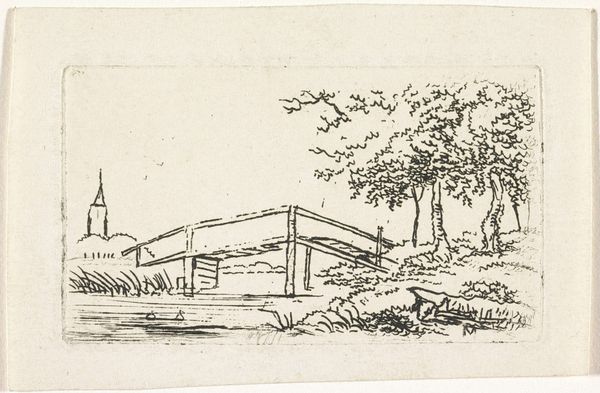
drawing, print, ink, pen
#
drawing
#
ink drawing
#
medieval
#
pen drawing
# print
#
pen illustration
#
pen sketch
#
landscape
#
ink line art
#
ink
#
pen
#
history-painting
Copyright: National Gallery of Art: CC0 1.0
This “River Landscape with Saint Christopher” was made by Augustin Hirschvogel, likely sometime in the first half of the 16th century, using etching. The etcher’s art is a slow one. First, the metal plate is prepared with a waxy ground. The artist then draws through the ground with a needle, exposing the metal. The plate is immersed in acid, which bites into the exposed lines. This process is repeated to achieve the desired depth of line. The ink is applied, the surface wiped clean, and the image transferred to paper under great pressure. Hirschvogel’s fine lines and detailed rendering of the landscape demonstrate the great skill involved. But look closely at the way the etcher has described laboring bodies: a figure working on the river bank, and Saint Christopher himself, forever doomed to carry the Christ child across the water. The print’s very existence owes to a similar investment of physical effort. When we consider the labor and processes inherent in printmaking, we gain a deeper appreciation for the social and cultural context that shaped it. This allows us to challenge the traditional distinctions between fine art and craft, between design and production.
Comments
No comments
Be the first to comment and join the conversation on the ultimate creative platform.

